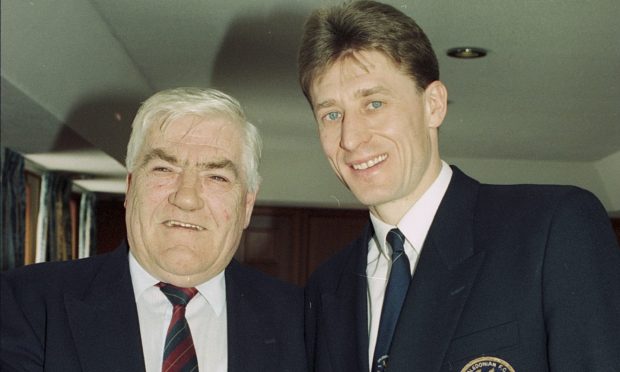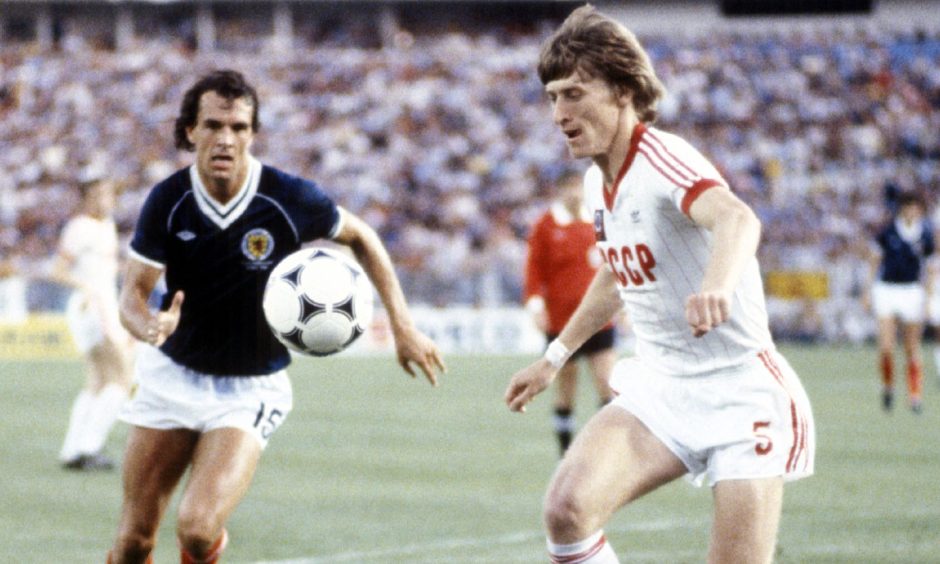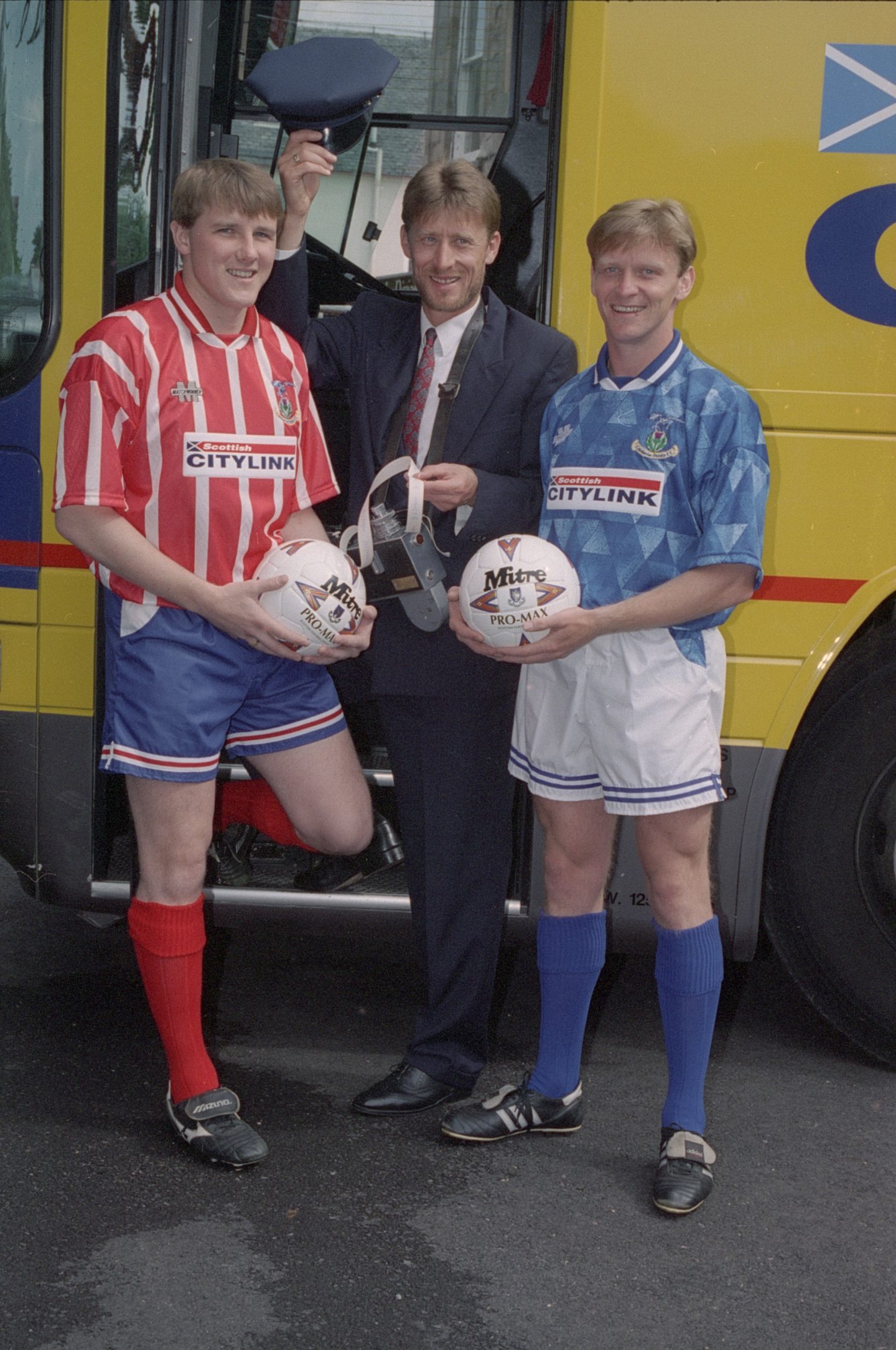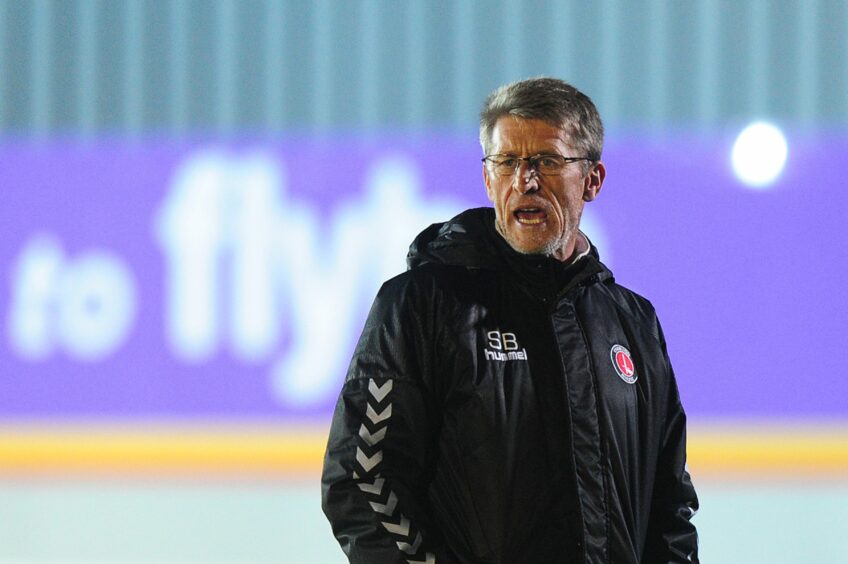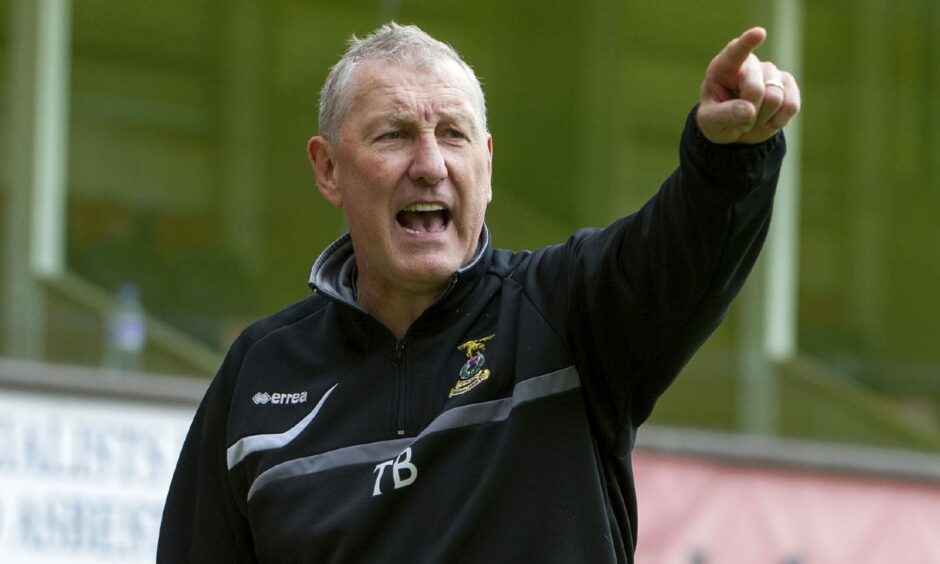Sergei Baltacha had a clear vision for Caley Thistle as they entered Scottish football’s senior leagues 30 years ago.
The then-newly formed club’s first manager, whose playing career reached the heights of playing in the World Cup for USSR, was perhaps ahead of his time.
He was in charge of the Caley Jags for just 14 months from March 1994 until May 1995, having been player-manager of Highland League side Caledonian before the merger.
It was a momentous period for Highland football as Ross County also gained entry from the Highland League.
The 66-year-old, who was most recently head of football at the private King Edward’s School in Surrey, cannot believe three decades have passed since that transformational time for the Highland capital.
Almost 30 years since the club kicked off life in Division Three, the Ukrainian said: “Caledonian was a good club with good people and it was a time when there was a new future for everyone in Inverness (due to the merger).
“It was a very exciting time and it was a new journey for a lot of people who deserved it.
“I was glad to be the first manager of Caley Thistle and I wanted to do my very best.
“It was a challenging time for these clubs who had for so many years been enemies.
“Parents and grandparents remember the history of two different teams, but for me it was normal.
“It was always going to take time to adapt and people to settle, but in terms of the players from both sides there were no bad feelings.
“It was interesting to see how people reacted but it was a great time.”
St Johnstone switch from Ipswich
Baltacha racked up 45 international caps for USSR and graced the pitch at the European Championships in 1984 and 1988, along with the 1982 World Cup.
He came on as a sub in the ’88 European Championship final as the USSR lost 2-0 to Holland, who won thanks to goals from Ruud Gullit and Marco van Basten.
After being given the green light from the Kremlin to move abroad, Dynamo Kiev star defender Baltacha, at the age of 30, became the first player from the Soviet Union to play in England when he joined big-hitters at domestic and European level, Ipswich Town, in 1988.
His time in Ipswich came to a close not long after manager John Duncan played the sweeper/centre-half all too often as a right-back or on the right side of midfield.
A switch to Scotland with St Johnstone opened up.
He told the Press and Journal: “I then talked to (ex-St Johnstone chairman/owner) Geoff Brown a couple of days later. I drove to meet him in Perth. I had never been in Scotland before.
“Geoff’s first question was about money. I told him ‘I want to play sweeper’ and asked ‘does this team play football?’. He said ‘yes’, and I said ‘no problem, if we can agree I play sweeper and your team plays football, I will come, brilliant’, so that came before any talk about money.”
Adjusting to life in the senior leagues
His three-year period in Perth, playing in the top-flight, was largely enjoyable.
But the father of late former tennis star Elena joined Caledonian, who were on the cusp of the ground-breaking merger with Inverness Thistle to create a new club in a bid to be voted into the senior divisions.
The campaign kicked off with a memorable 5-2 home triumph against Albion Rovers on August 13, 1994, led by a quick-fire first-half hat-trick from skipper Alan Hercher, and the new side forged from two rivals were top of the table by September 10.
They went on to finish sixth, by which time Baltacha and the club had already agreed to part ways at the end of a historic season.
He said: “After getting 45 points in the Third Division in the first season, I wanted us to step up the levels.
“We needed a new structure in terms of a training ground and to have full-time players. I wanted more sessions with the players and to have more and better facilities.
“I had players from Glasgow and Perth; I had coaches who used to coach players in Glasgow, which was not ideal, to have half the team training in Inverness and half training in Glasgow.
“I tried to set up a system where players moved here and we gave them proper contracts with better money to go full-time. We would attract better players.
“I wanted all this to happen, but the club was not ready for this. It was too early in the journey.
“Premier League clubs in Ukraine asked me whether I wanted to come over. I went back to Ukraine for three years.
“Overall, though, my memories over Inverness were good, it was sad for me to not complete the challenge.
“I played at the top level and I knew the best structure for clubs. That was disappointing for me.”
Full-time dream came too soon
Baltacha was, however, thankful to have the group of players he did in those early days of Caley Thistle.
Yet, there remains a sense that, with more ammunition and a driven purpose, the club could have kicked on sooner than it did, having twice enjoyed periods in the top division, most recently until 2017.
He added: “I tried to make things as professional as I could. Having played at the top level, I knew what you needed.
“I knew the demands from my time in the Premier League and having played in the World Cup.
“I wanted to give these boys at Inverness an opportunity. That’s why I wanted to go full-time.
“We could not achieve what I wanted because players were also working and they didn’t have time to focus solely on football.
“I appreciated the players – they worked hard for me. I liked them and I was honest with them.
“If they did something wrong, I would tell them, but I also asked them to let me know if they were not happy with anything.
“Please, don’t go behind my back, speak to me – that is the one way to achieve success in football. It is by being together.
“The boys responded brilliantly. Even now, I’d like to say thank you to them for all their support.
“It was a really enjoyable time for me, but we just didn’t achieve what I really wanted. We could have done more with some different people.”
Baltacha hails Terry Butcher’s impact
When ex-England and Rangers captain and former Caley Jags manager Terry Butcher came up in the conversation, Baltacha stressed: “I said to boys Terry was a great example of a top, top player.
“He was a fighter on the football pitch. You could see he would die on the pitch for his team.
“He was a brilliant example for everyone, not only in this country, but throughout the world. I have big respect for Terry. He is a legend.
“People like Terry should still be in football. They live in football, they are professionals. There are not many people like that.
“Football clubs should employ people like Terry because of the benefits they bring.”
Baltacha keen for a Scottish return
Baltacha is open to returning to Scotland and remains confident he can turn starlets into top professionals.
He said: “I would be a first-team manager again, no problem. I could be a director of an academy. I have great experience.
“Terry and I could lead Inverness one day. Maybe a Scottish club would be interested in me continuing my journey.
“I had players reach the first-team at Charlton, who I used to coach. I worked 20 years at the club and made (transfer fees worth) £100m.
“One of my main strengths is to develop players.”
